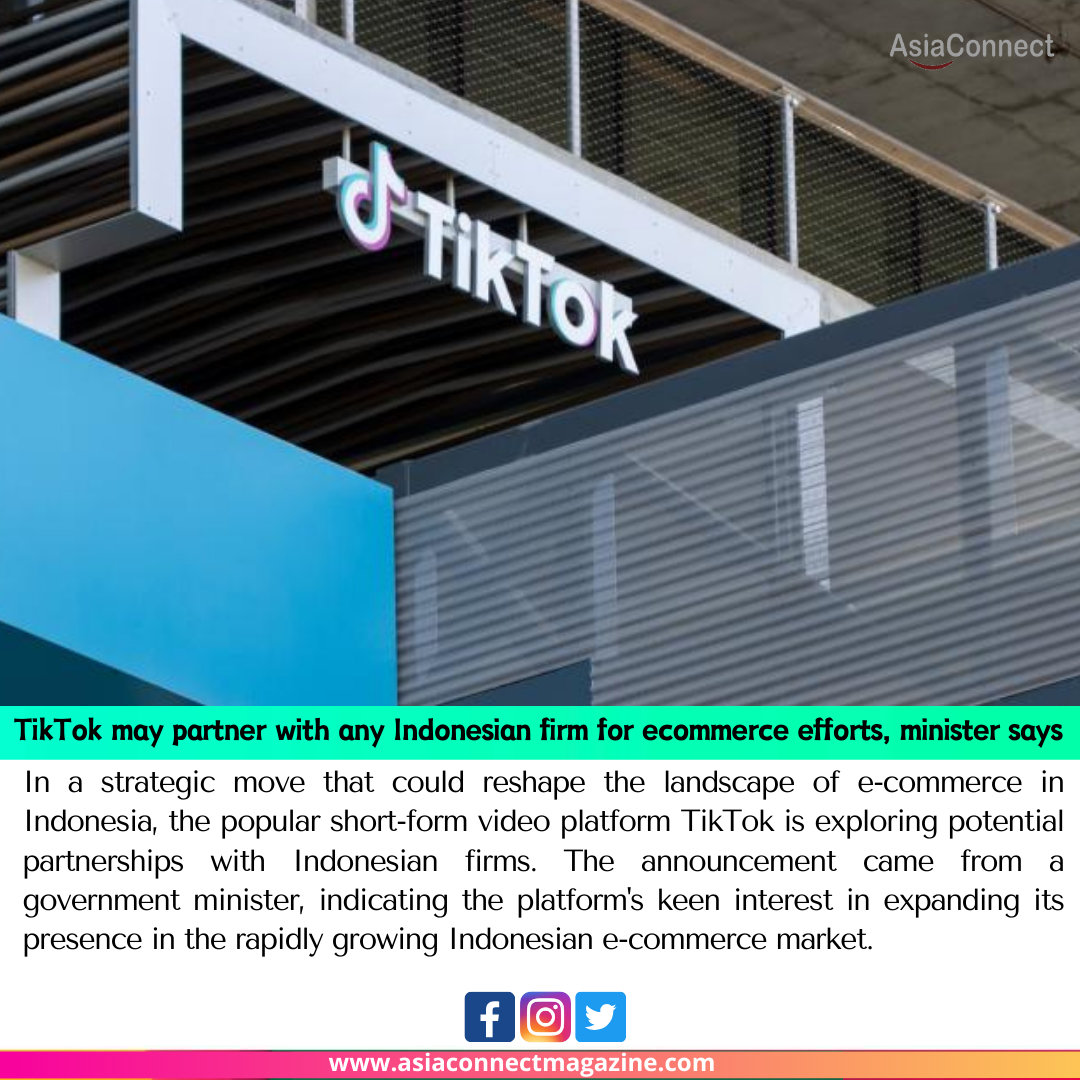In a strategic move that could reshape the landscape of e-commerce in Indonesia, the popular short-form video platform TikTok is exploring potential partnerships with Indonesian firms. The announcement came from a government minister, indicating the platform’s keen interest in expanding its presence in the rapidly growing Indonesian e-commerce market.
TikTok, known for its engaging and viral short videos, has become a global phenomenon, particularly among younger audiences. The platform’s move into e-commerce aligns with broader trends in the tech industry, where social media and entertainment platforms are increasingly integrating shopping features to capitalize on their user base.
The potential collaboration with an Indonesian firm signifies TikTok’s recognition of the importance of local expertise and understanding in navigating the intricacies of the Indonesian market. By partnering with an established entity, TikTok aims to leverage existing infrastructure, market insights, and regulatory knowledge to streamline its entry into the e-commerce sector.
Indonesia, with its large and digitally engaged population, presents a lucrative opportunity for tech companies venturing into e-commerce. The partnership could open doors for TikTok to tap into the vast consumer base and offer a seamless shopping experience to users, combining entertainment and commerce in a unique way.
The Indonesian government’s positive stance on the potential TikTok partnership reflects the country’s commitment to fostering a conducive environment for foreign tech investments. Such collaborations are viewed as catalysts for economic growth, job creation, and the advancement of the digital economy in Indonesia.
TikTok’s foray into e-commerce is not unprecedented, as other social media platforms have successfully integrated shopping features into their ecosystems. The convergence of content consumption and online shopping has become a trend, and TikTok’s unique format may provide an innovative platform for brands and businesses to connect with consumers in a visually engaging manner.
The success of TikTok’s e-commerce efforts may hinge on its ability to seamlessly integrate shopping features into the user experience without compromising the platform’s primary appeal—short, entertaining videos. Striking the right balance between content creation and commerce is a delicate task that requires a nuanced understanding of user behavior and preferences.
Additionally, the partnership could bring about new opportunities for Indonesian businesses, allowing them to reach a broader audience through TikTok’s global platform. Local products and brands may gain visibility not only in Indonesia but also in other markets where TikTok has a significant user base.
However, challenges such as competition with established e-commerce players, regulatory compliance, and user privacy concerns must be carefully addressed. Navigating the complex landscape of e-commerce in a diverse market like Indonesia requires a comprehensive strategy that considers local nuances and consumer behaviors.
In conclusion, TikTok’s potential partnership with an Indonesian firm for its e-commerce efforts signifies a strategic move to capitalize on the thriving digital economy in Indonesia. The collaboration reflects a recognition of the importance of local expertise and a willingness to adapt to the unique dynamics of the Indonesian market. As TikTok ventures into the realm of e-commerce, the success of this partnership will depend on its ability to seamlessly integrate shopping features while preserving the essence of its popular short-form video content. The outcome could not only reshape the e-commerce landscape in Indonesia but also serve as a blueprint for other tech platforms eyeing the intersection of entertainment and online shopping.





